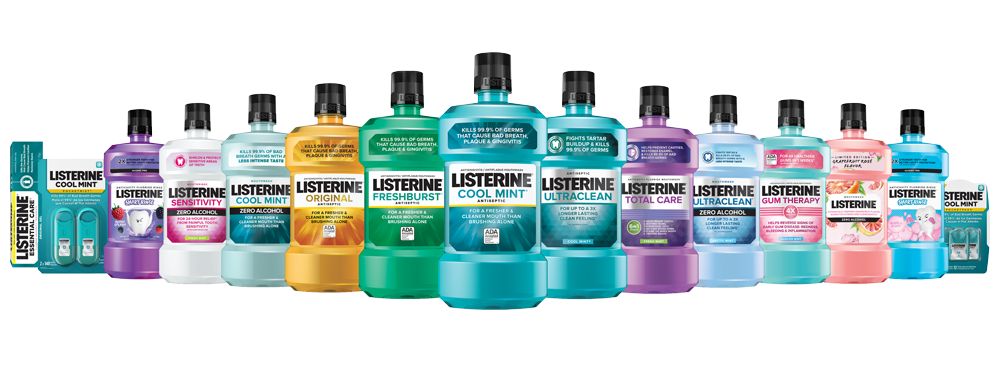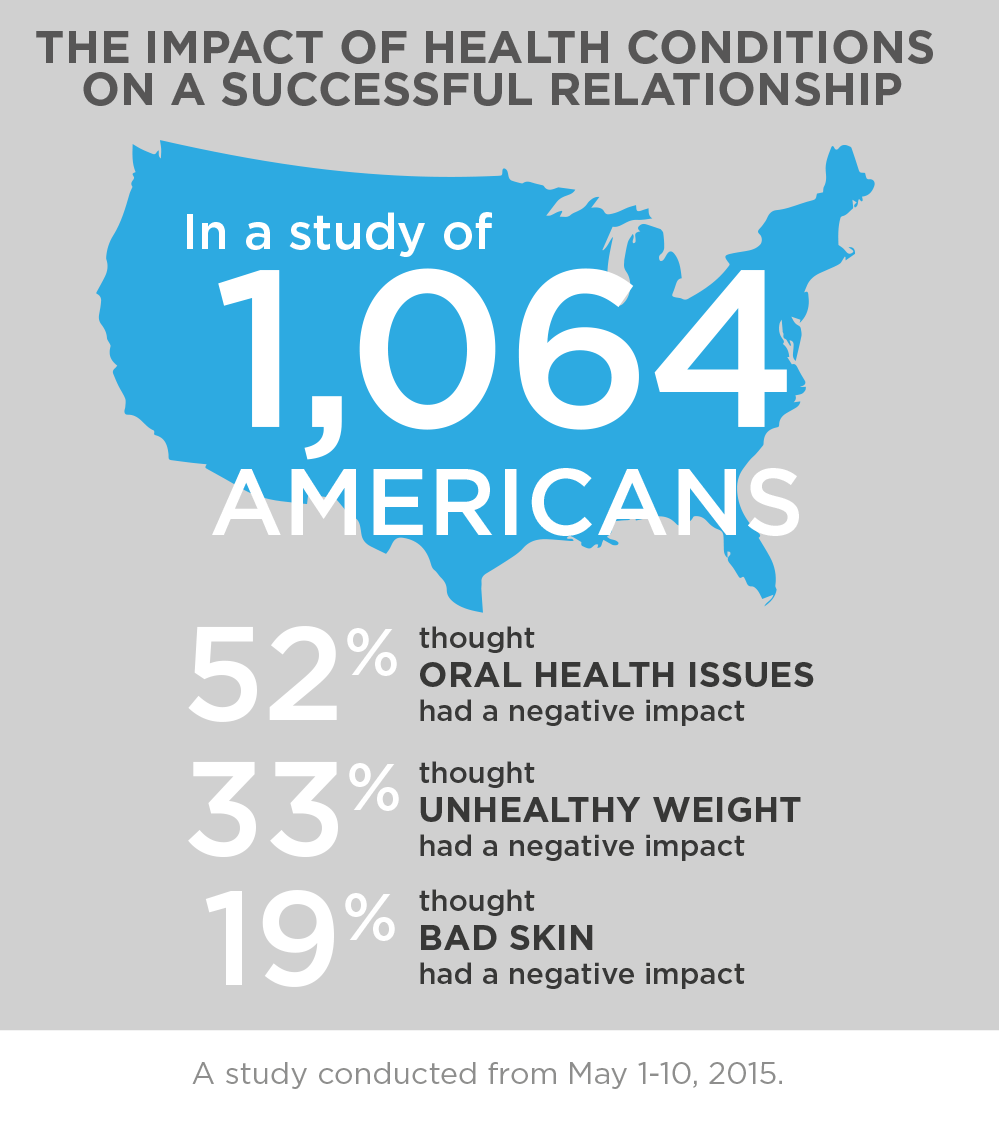

Licensed professionals can receive the latest Listerine clinical information and patient resources.
AMERICANS BELIEVE THE SOCIAL STIGMA SURROUNDING POOR ORAL HEALTH TRANSLATES INTO CONCRETE CONSEQUENCES1
Dental disease negatively impacts general quality of life, affecting physical well-being, as well as psychological and social well-being.2 Oral health can also impact confidence, social relationships, and career.1 More specifically, impaired oral health and craniofacial health can affect diet, nutrition, sleep, psychological status, social interaction, school, and work.2
A study of 1,064 Americans conducted from May 1 to May 10, 2015, revealed that more than 52% of Americans feel that oral health issues, such as missing or yellow teeth, bad breath, swollen gums, or tooth decay can greatly impact someone’s success in their relationships. The degree of impact oral health issues possess is greater versus unhealthy weight (33%) or bad skin (19%).1

In the same study of 1,064 Americans, 80% stated that they believe oral health issues can negatively impact a person’s comfort level when meeting new people. When it comes to a person’s ability to make new friends, 59% also believe that oral health issues can negatively impact that as well. An overwhelming percentage say it is common for people with oral health issues to avoid relationship-building gestures, like smiling while talking (84%), being close to someone while talking (73%), or kissing or cuddling (72%).1
According to self-reports, oral conditions imposed limitations on social function in verbal and nonverbal communication, social interaction, and intimacy. Furthermore, people with facial disfigurements due to craniofacial diseases and conditions can experience anxiety, depression, social stigma, and loss of self-image and self-esteem, which may hinder educational, career, and marital opportunities and impact other social relations.2
Safe and effective disease prevention measures exist that everyone can adopt to improve oral health and prevent disease, including daily oral hygiene procedures and other lifestyle behaviors.2 Counseling your patients on routine checkups and proper at-home preventive care—like brushing twice a day using a toothpaste with fluoride and flossing daily—can help them maintain their oral health, thereby potentially avoiding the stigmas associated with poor oral hygiene.
Oral Disease and Self-Confidence Footnotes
References: 1. Johnson & Johnson Consumer Inc. The social impact of poor oral health. LISTERINE® study report. June 2, 2015. 2. National Institute of Dental and Craniofacial Research. Oral health in America: a report of the Surgeon General (executive summary). http://www.nidcr.nih.gov/DataStatistics/SurgeonGeneral/Report/ExecutiveS.... Accessed July 9, 2015.



All Fields required, unless otherwise indicated
Personal Information
Step 1
Will be used as your user name
By submitting your information above, you agree that the information you provide will be governed by our site's Privacy Policy.